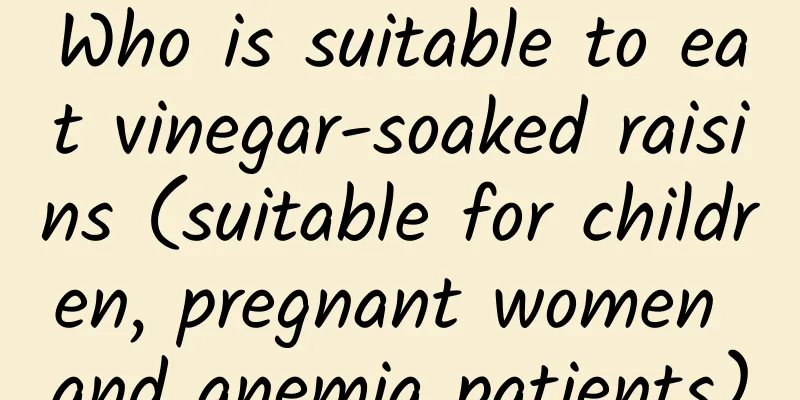How long do egg cells survive?

|
Girls ovulate regularly once a month, and the eggs released have a survival time. If there is no collision with sperm during this period to produce a fertilized egg, the egg will be lost with the body's menstrual period. Therefore, the number of eggs is limited. If you want to get pregnant, you must master the time of ovulation. Some relevant knowledge about eggs needs to be understood clearly. How long does the egg survive after it is released? How long can an egg survive after it is released? Women ovulate regularly once a month. The time of ovulation (ovulation period) is generally 12-16 days before the next menstrual period. The egg can only survive for 12-30 hours after being released. The average survival time of an egg after being released is 12-30 hours, so if you want to have a baby, the egg must quickly merge with the sperm. If the egg does meet a healthy sperm on the way to the uterus, they combine and begin to create new life. But if the egg does not meet the sperm, it will break down in the uterus, ending its journey. Because pregnancy is not occurring, the ovaries stop producing estrogen and progesterone (also known as progesterone), which help maintain pregnancy. As levels of these two hormones drop, the thickened endometrium is shed during menstruation and expelled from the body along with the dissolved egg. Minimum egg survival time The survival time of most women's eggs is 2 days, a small number is 3 days, but there are also many women whose eggs only survive 1 day. The shortest female egg survival time is even less than 12 hours. In other words, these women have only one chance to conceive during each menstrual period, which is on the day of ovulation. If the couple misses this day, they will have to wait until the next menstrual period. Women in their normal reproductive period ovulate once a month, approximately 12-16 days before the next menstrual period. The egg survives for 1 day, and the sperm can survive for 3 days after entering the female reproductive tract. Therefore, pregnancy is possible if you have sex 3 days before ovulation or 1 day after ovulation. This is called the danger period. The eggs can mature and be released at any time. Although there are 300,000 to 600,000 primordial follicles in the ovaries that can produce eggs, only 400 to 500 follicles will mature and release eggs in a lifetime. In principle, only one ovary produces one egg per month. After being released, it quickly enters the fallopian tube to prepare for fertilization. If it does not meet sperm, it will lose the ability to conceive within 12 to 24 hours. According to statistics, an average woman will ovulate more than 400 eggs in her lifetime, which means that a woman has only 400 to 500 chances of getting pregnant in her lifetime. Excluding some wasted menstrual periods, a woman's chances of ovulating and getting pregnant are less than 200 times. In addition, the best reproductive age for women is between 23 and 29 years old. During this period, if a normal woman releases 12 eggs each year, then the best chance of a woman becoming pregnant is only 84 times. |
<<: Can I sing during early pregnancy?
>>: Where is the egg fertilized
Recommend
Do you always have phlegm in your throat and can't spit it out? There may be something wrong here, don't take it lightly!
Do you always have phlegm in your throat and can&...
Normal uterine artery blood flow
The value of uterine artery blood flow is also an...
Is it normal to have bleeding half a month after miscarriage?
Key reminder: Women find that they have bleeding ...
Causes and treatment of rhinitis during pregnancy
Pregnancy is something every woman will experienc...
How many days of pregnancy can you react
Morning sickness is a type of early pregnancy rea...
Treatment of bleeding 50 days after cesarean section
Postpartum lochia is usually discharged within th...
Why is my chest bloating and pain due to my period approaching?
Menstruation is another name for the menstrual pe...
What symptoms will the wind show during the confinement period?
During the confinement period, you must not be ex...
How to treat female menstrual disorders?
We often encounter women around us who say that t...
Can pregnant women take Isatis root granules when they have a cold?
Isatis root granules are a medicine for treating ...
Treatment and follow-up of bleeding after cervical conization
For many women, when their cervix is diseased, ...
Can a woman still get pregnant after having a vasectomy?
Many people are familiar with male sterilization,...
There are many types of milk on the market. How should we choose? The key is to look at this indicator!
Milk is favored by people as a source of high-qual...
Do breasts swell during early pregnancy?
As we all know, pregnancy is a very difficult pro...
I feel dizzy and weak during confinement.
Women consume a lot of energy and physical streng...









